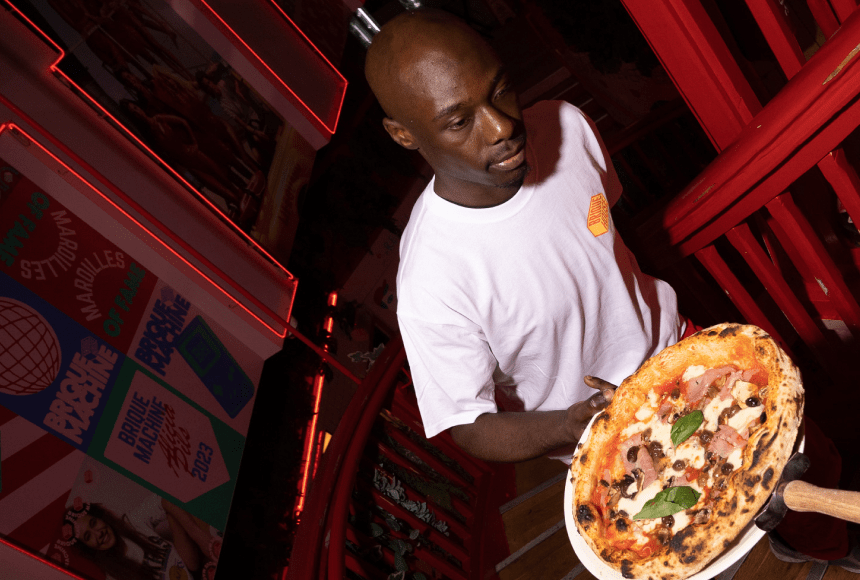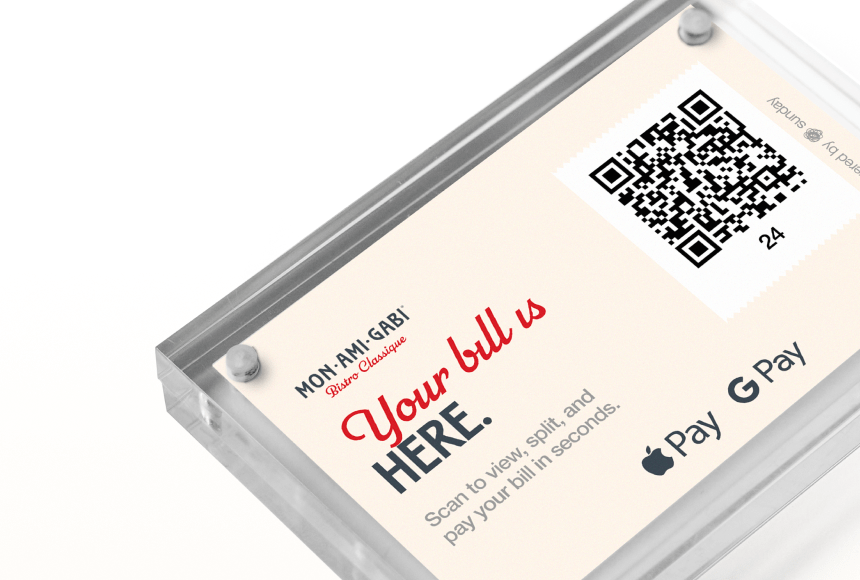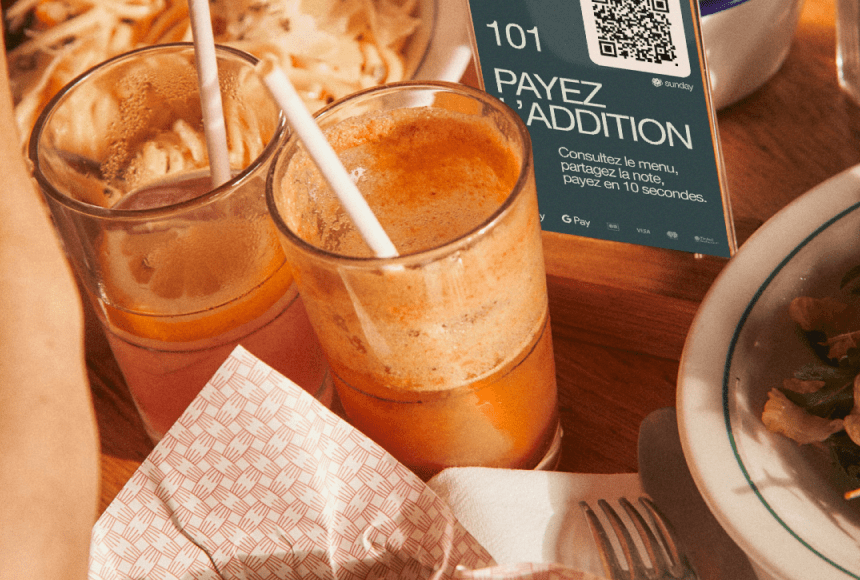
Guiding Your Staff to Success: Management Techniques that Elevate Sales in Restaurants
Why Leadership and Sales Go Hand in Hand
Most restaurant owners and managers focus heavily on factors like menu design, pricing strategies, or marketing campaigns to increase revenue. Yet one of the most powerful levers for boosting sales lies in how you manage your teams. According to the National Restaurant Association, engaged and well-led teams consistently generate higher ticket averages, better customer satisfaction scores, and greater overall profitability.
It’s not just about telling staff to upsell or memorize daily specials. Effective management fosters an environment where every person feels invested in the restaurant’s success and confident in their role—be it server, host, line cook, or bartender. This sense of shared purpose translates into organic sales growth, as employees naturally recommend dishes, handle customer requests more proficiently, and come up with fresh ideas to enhance the dining experience. Below, we’ll explore concrete ways to manage your teams so they feel motivated, skilled, and ready to deliver top-notch service that drives your bottom line.
Clarify Expectations and Goals
When people know exactly what they’re striving for, they’re better able to align their day-to-day actions with organizational objectives. This clarity is particularly crucial in a busy restaurant setting, where multiple roles and shifting priorities can muddy the waters.
Share Specific Sales Targets—Perhaps you want to increase beverage sales by 10% this quarter or see a certain percentage of guests trying your new dessert. Let staff know the target and why it matters. For example, maybe beverage revenue offsets rising ingredient costs, or dessert sales help reduce waste on leftover pastry dough. Connecting everyday tasks to these broader aims underscores the why.
Define Quality Standards—Besides sales figures, your success depends on consistent service quality. Outline standards like average table turn times, order accuracy, or feedback scores from customer comment cards. If employees see a direct link between meeting these standards and better guest experiences, they’ll naturally aim for excellence.
When staff have a crystal-clear picture of what success looks like—and how it benefits them and the restaurant—they’re more likely to step up with enthusiasm.
Empower Staff with Proper Training and Tools
Sales don’t magically jump when employees are left guessing how to upsell or handle complicated orders. By investing in robust training, you give your teams the confidence to engage guests, showcase new dishes, and recommend pairings—all of which can lift the average check size and overall sales.
Thorough Onboarding—New hires should learn about your restaurant’s story, key menu items, preparation styles, and beverage offerings. This base knowledge lets them speak passionately about dishes, suggesting thoughtful add-ons rather than generic upsells.
Ongoing Skill Development—Even seasoned servers benefit from refreshers or advanced workshops. Maybe hold monthly micro-sessions on wine pairing, dessert presentations, or how to describe daily specials more vividly. These small but regular training moments keep staff updated and engaged.
Tools That Simplify Tasks—Modern solutions, like a streamlined POS or smart terminal, reduce friction for employees and free them to focus on guest engagement. If a bartender has an intuitive touchscreen to finalize orders quickly, they can spend more time crafting signature cocktails and interacting with patrons, boosting bar sales.
Foster a Positive Sales Mindset (Without Pressure)
One key to driving higher revenue is encouraging servers, hosts, and even back-of-house teams to think in sales terms. Yet you want to avoid a pushy or transactional atmosphere. The trick is striking a balance: staff should feel comfortable offering additional items, not forcing them on guests.
Teach Conversational Upselling—Instead of “Want fries with that?” employees might ask, “Our garlic rosemary fries have been a hit tonight—would you like to try them on the side?” This approach frames the suggestion as an enticing possibility, not a robotic pitch.
Recognize Thoughtful Promotions—When a server expertly pairs a new appetizer with a popular entrée and it consistently increases check size, acknowledge that publicly. Praising the “how” of upselling—like using descriptive language or referencing a guest’s hinted preferences—reinforces the right approach.
Focus on Guest Satisfaction—It’s not enough to chase revenue if guests feel hustled. Make sure any suggestive selling aims to genuinely enhance the meal. If staff only push the priciest items, diners can sense the tactic, potentially harming repeat business. True team-driven sales revolve around hospitality first.
Lead with Inspirational Management
Your role as a manager or owner is about more than handing out tasks or checking timesheets. It’s guiding the entire group toward a shared vision—and forging an emotional bond that keeps them motivated. This leadership style can directly translate into higher sales:
Set the Right Tone: If you handle the pre-service briefing with energy, positivity, and clarity, staff tend to mirror that vibe. A confident manager can turn a potentially stressful evening rush into a collective challenge they tackle together.
Be Visible and Approachable: Walk the floor, chat with servers, help expedite in the kitchen when it’s slammed. Show that you’re involved, and staff will respect and trust your directives more—particularly about selling new specials or limited-time offers.
Encourage Autonomy: Don’t micromanage every discount or upsell choice. Give staff guidelines but trust them to use judgment—like comping a drink for a loyal regular or spontaneously recommending a new dessert. When staff have a sense of ownership, they actively find ways to enhance guest experience and sales.
Motivate Through Clear Incentives and Rewards
While a shared culture and strong leadership matter, tangible incentives can jumpstart sales-minded behaviors. These don’t always have to be monetary, but a well-structured reward system often proves effective.
Team-Wide Bonuses: For example, if the restaurant meets a monthly sales goal—be it total revenue or specifically higher beverage numbers—everyone might get an incremental bonus or a celebratory meal. This fosters collaboration, as staff help each other out to reach a common milestone.
Individual Recognition: Some employees thrive on a bit of friendly competition. Maybe highlight the top dessert seller or the bartender who introduced the most signature cocktails. Even small prizes—like a gift card or an extra day off—can stoke a healthy contest that boosts sales.
Profit-Sharing or Commission Elements: In some setups, adding a small commission on big-ticket items (like a premium bottle of wine) motivates staff to refine their sales approach. Just be sure that any commission structure feels fair and doesn’t lead to overly pushy tactics.
Provide Real-Time Feedback and Coaching
In fast-paced kitchens or crowded dining rooms, staff rarely have time for lengthy reviews mid-shift. Yet timely feedback—delivered in short, constructive bursts—helps keep everyone on track.
Micro-Coaching Moments: If you spot a server awkwardly upselling or skipping mention of a daily special, gently highlight it once the table is settled. Brief, immediate coaching is more impactful than a general note at the end of the week.
Mid-Shift Check-Ins: Pause for quick huddles if sales of a new appetizer are lagging or if the bar is underpromoting a seasonal drink. Ask staff for input: “Is the pitch too long?” “Do we need better signage?” Engaging them fosters buy-in.
Positive Reinforcement: Don’t just correct mistakes—also celebrate wins. If the host pointed out a new dessert to waiting guests and it led to extra sales, applaud that initiative. This positivity keeps morale up even under pressure.
Streamline Operations to Reduce Stress
When staff are bogged down with inefficient processes—like an outdated POS or time-wasting order handoffs—they have less mental space to focus on selling. Freed from these hassles, they can be more attentive and persuasive with guests.
Technology That Aids Service: Tools like sunday reduce friction, allowing fast checkout or easy tableside payment. Fewer technical headaches let servers chat with patrons about add-ons or upsells.
Kitchen Coordination: A seamless expo line or a well-run pass ensures orders come out faster, so staff can handle more tables or talk about dessert options without worrying about the backlog. Clear comms between FOH and BOH fosters that polished guest experience that drives repeat business.
Decluttered Workflows: From labeled storage for glassware to regularly stocked napkin stations, each micro-efficiency gives employees time and bandwidth to engage with customers, answer questions, and highlight special items.
Measure and Celebrate Progress
When everyone invests effort into boosting sales, it’s crucial to track the results—and share them with the team. Not only does transparency sustain motivation, but it also shows that management recognizes the collective push.
Regular Sales Reports: Post weekly or monthly sales metrics where staff can see them—like total revenue, number of appetizers sold, or average check size. Summarize any increases or new records, making sure to attribute the improvements to specific teamwork or changes in service approach.
Spotlight Achievements: If you introduced a limited-time seasonal menu and it boosted sales by 15%, highlight the collaborative role—like how the kitchen adapted quickly, servers mentioned it with enthusiasm, and the bar whipped up complementary cocktails.
Set Next Milestones: Maybe you’ll shift focus next month to dessert sales or weekend brunch occupancy. By framing each objective as a short-term campaign, staff remain engaged and see how their ongoing efforts fit into bigger goals.
Retain Your Best People for Sustainable Growth
Raising sales doesn’t stop with a single promotional push or a newly hired star bartender. Turnover can undo these gains if your skilled servers or line cooks depart for better pay or a friendlier work atmosphere. Effective management thus links seamlessly with employee retention strategies:
Competitive Compensation: If staff earn too little or rarely see raises, they may bail despite enjoying the job. Offer wages and benefits that reflect their contribution, making them see a clear career path within your restaurant.
Team Spirit: Build an environment where colleagues genuinely help one another. Morale and strong team dynamics encourage staff to stay, continuing to refine the sales approach as a cohesive unit.
Opportunity for Growth: Let employees expand their skill sets—like a server exploring bar shifts or a prep cook cross-training as a line cook. They’ll feel valued and remain more dedicated to meeting the restaurant’s sales targets.
A stable, competent team is the bedrock of consistent upselling, strong relationships with regulars, and overall operational excellence.
Promote a Culture of Continuous Learning
High-performing hospitality teams don’t just memorize a script once and coast. They adapt to changing menu items, trends in cocktails, and evolving customer preferences. Cultivate this dynamic approach by:
Regular Training Sessions: Brief, focused updates on new wines, specials, or dessert improvements keep staff up-to-date. Consider inviting distributors to share product knowledge or local producers to discuss ingredient sourcing.
Encouraging Idea-Sharing: If a server tries a new phrasing—like “Would you like to start with a refreshing cucumber martini?”—and sees success, have them pass that tip along in a shift meeting.
Learning from Mistakes, Openly: If a particular campaign to sell a new appetizer falls flat, analyze it together. Was it the menu description, the server’s pitch, or a mismatch with customer tastes? Collaborative problem-solving fosters synergy and improvement, strengthening the culture of continuous growth.
This collective learning helps staff feel intellectually engaged, pushing them to refine their approach and reinforce a sales-positive mindset.
A Path to Lasting Sales Success
Management is at the heart of building a restaurant team that naturally drives sales. By setting clear goals, providing the right tools, energizing staff with recognition, and building a supportive environment, you empower them to do more than just take orders or ring up checks—they become true ambassadors for your menu and brand.
The result: diners who experience top-notch hospitality, enjoy personalized recommendations, and return as loyal customers. Over time, that loyalty sustains and grows your revenue, overshadowing the usual short-lived effect of mere promotions or discounts. When employees feel valued and motivated, their passion translates directly into higher sales, intangible goodwill, and a glowing reputation that sets you apart in a crowded market.
The takeaway is simple: the secret to increasing sales isn’t found in a single upsell script or flashy campaign—it’s in better managing your teams, day in and day out, to cultivate genuine enthusiasm and skill. By doing so, you’ll see not just one-time spikes in average check size, but a long-term boost in both profitability and employee happiness.
Find out more today
Drop us your details below and we’ll reach out within the next 24h
Get the full, detailed picture.
sunday elevates your business with insightful data, instant feedback and precise analytics.




